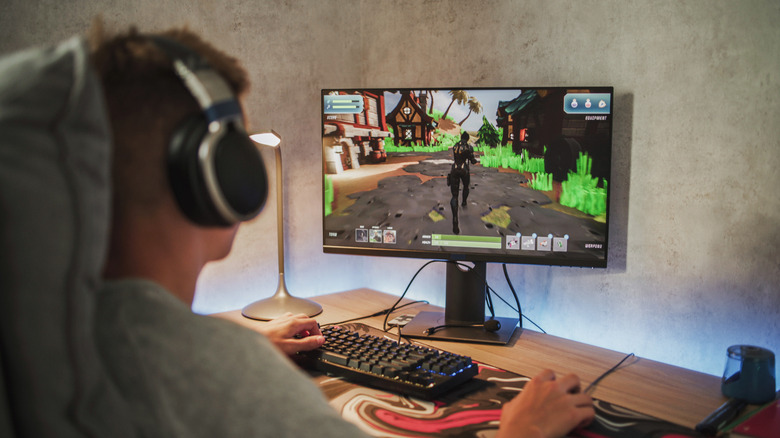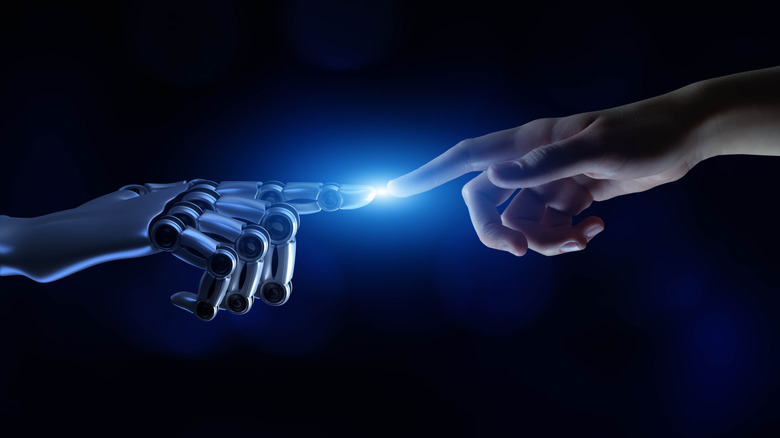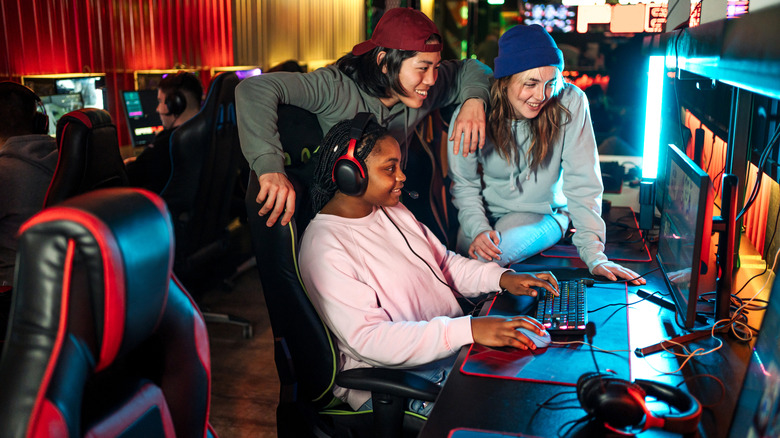This Gaming Company Is Replacing Humans With AI, And Players Are Calling For A Boycott
"Instant boycott." "A boycott is never a bad idea." Those are some of the comments in a Reddit thread discussing the AI pivot and voluntary employee resignation at Krafton, the company behind hits like PUBG. The move is surprising, and the backlash seems well-warranted. At the end of July, Chinese gaming giant Krafton announced that it recorded its best-ever first half and generated record-high revenue, and ended the first half of the ongoing year with nearly half a billion dollars in profit.
Naturally, one would imagine that Krafton will look forward to building on its battle royale success and branching out in the segment. Instead, the company announced that it was "investing in AI innovation to shape the future of gaming." If that didn't already sound ominous enough, the company later dropped another bombshell at the end of a record-breaking third quarter, announcing plans for a massive AI restructuring that involved voluntary resignations from employees.
According to Business Korea, Krafton is pushing the voluntary resignation scheme as assistance instead of workforce reduction, adding that it will offer employees a choice between transitioning to a different role internally or looking for opportunities elsewhere. But the real outrage happened because of the AI push within the game development process itself. Krafton chief Kim Chang-ha told employees in an internal memo that the company "will automate work centered on agentic AI."
Krafton hasn't dished out on how exactly it's going to use AI, but the possibilities are endless. Game visual and asset generation, visualizing characters, brainstorming in-game dialogues, prototyping, play-testing, quality assessment, and more. The cost, at the end of the day, is lost jobs for human workers. And if the recent AI-game attempts are anything to go by, a quality downgrade for games as well.
An almost existential fight
In July, the SAG-Aftra strike finally came to an end, following a deadlock over AI personality and voice-likeness rights. The agreement promised better protections to artists and video game industry workers in a climate where studios are increasingly turning to AI. But it's not just voice artists and actors who are at risk of losing jobs, but also technical and creative staff involved in the lengthy process of game development. Embark Studios, which developed the shooter game "ARC Raiders," recently revealed that it used AI text-to-speech (TTS) for game dialogues.
The company's chief later said in an interview that every company was using AI. In response to the comment, Demonschool developer Necrosoft Games publicly said they would cut off their own arms rather than push AI. Jumping into the debate, Epic Games chief Tim Sweeney argued that the criticism of AI in games was mostly political and that AI will only increase productivity to build better games. Notably, the actors' union filed a case against Epic in May when the company used an AI-generated Darth Vader voice in "Fortnite," noting that the company did so at the cost of protesting workers.
Krafton's move is not without precedent, but it is an omen of bad times to come. AI is already invading studios and jobs are being cut. A WIRED investigation revealed that Activision, Blizzard Entertainment, Riot, and Treyarch are all planning to embrace AI. This came after brutal layoffs in the 2024-2025 spell across Microsoft, Riot, Square Enix, and other big names. A staggering 26% of game industry workers in Europe got laid off in 2024, while the number stood at 35% in 2024. Krafton's move has naturally attracted criticism, and fans are even calling for a boycott.
It's bad news for games. At least, for now.
The topic of AI is currently taboo, at least when it comes to discussing it publicly. Soon after Square Enix revealed that it plans to automate nearly 70% of QA tasks to AI, even insiders lambasted it as a stupid move. But AI is very much here to stay, and we are already seeing some high-profile adoption. Elon Musk has proclaimed that his AI company, xAI will make AI-generated media content and that a "great AI-generated game" will land in 2026. Activision was criticized for using AI-generated assets in "Call of Duty: Black Ops 6" material. Developers have also overwhelmingly claimed that AI will lower the quality of video games.
Despite all the viral images and videos generated by AI tools such as Midjourney and Dall-E, using them to develop games is not a straightforward chore. Merely a few weeks ago, AI investor Matt Shumer shared the footage of an AI-generated game clip that was widely mocked for unrealistic physics, poor 3D rendering, and random stability issues. Employees at Electronic Arts also told Business Insider that their attempts at pushing AI into the game development workflow are not working.
The environmental footprint of AI is already a cause of concern, and the 95% failure rate of AI investments is another headache. Compound that with the inherent AI issues such as bias and hallucination, high training costs, and poor quality status right now — and we are essentially looking at bad news for the gaming industry. And if it comes at a grave human cost, despite the known risks and failures, Krafton's move into an agentic AI future deserves the criticism that is currently stirring debates on public forums. As far as the tech stack goes, I am not hopeful about it or a good future for Krafton titles such as PUBG in general.


